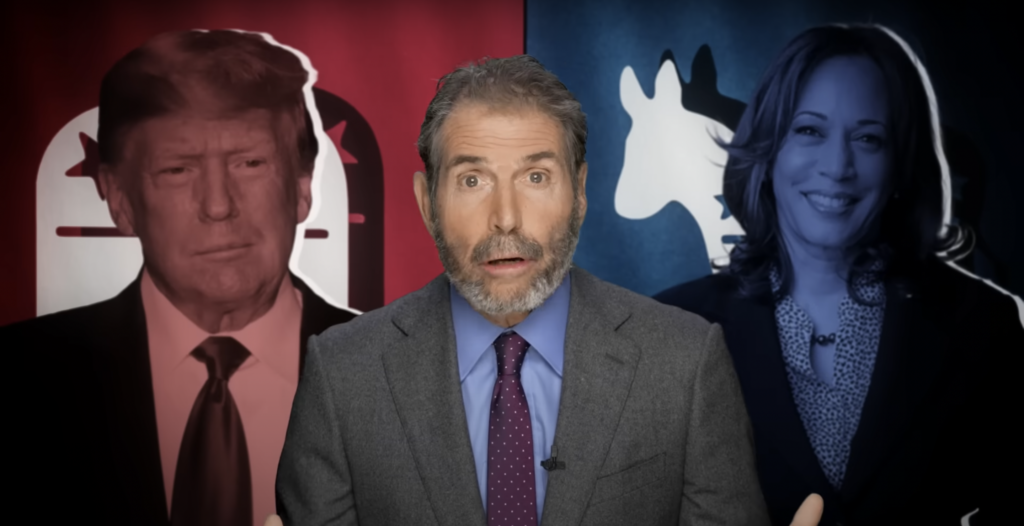Donald Trump and Kamala Harris Continue to Make Economically Misguided Promises
In the current political landscape, both former President Donald Trump and Vice President Kamala Harris are making bold promises that are gaining attention from their respective support bases. Trump’s recent proposals, such as eliminating taxes on tips and not taxing overtime, received enthusiastic applause. Harris mirrored some of these ideas, advocating for similar tax exemptions, which were welcomed by her audience. However, economist Allison Schrager presents a critical view of these narrow tax exemptions, arguing that they lead to unintended negative consequences. While the intention behind reducing taxes is to provide relief, specific exemptions can distort labor markets and alter employer-employee relationships in harmful ways.
Schrager emphasizes that tax exemptions, such as those on tips, can create disparities among employees in the service sector. For instance, if restaurant owners begin to navigate hiring based on who benefits from these exemptions, it could lead to a labor market skewed towards hiring only those who can receive tips, potentially marginalizing other essential staff. Furthermore, the proposal to eliminate taxes on overtime might have the adverse effect of reducing overall hiring, as employers may prefer to offer more hours to existing staff rather than bringing on new employees. This perspective reflects a broader consensus among economists, regardless of their political affiliations, that raises alarms about the practicality of such tax policies.
Harris has not shied away from making promises that align with a more interventionist approach to housing, including a commitment to enforce stricter rent controls. While this might resonate with supporters advocating for renters’ rights, Schrager argues that such policies can be detrimental to the rental market. The introduction of rent controls typically discourages landlords from renting properties, as they may see the regulatory climate as hostile. This, in turn, leads to a reduction in available rental units and possibly higher prices in the long run. The success of recent changes in Argentina, where new libertarian leadership scrapped rent controls, illustrates a contrasting approach that resulted in increased rental supply and declining prices.
On the subject of trade, both Trump and Harris appear to favor protectionist policies, such as tariffs, which Schrager argues ultimately harm American consumers by raising prices and decreasing choices. Free trade, according to Schrager, has positive effects on the economy, fostering growth and job creation that offset the losses incurred by specific sectors. While it is recognized that trade deals can lead to job dislocation, the broader net impact tends to benefit the economy by creating more and better jobs. Trump’s and Biden’s aggressive tariff policies not only hit international counterparts like China but also complicate domestic economic dynamics, posing a threat to consumer welfare.
Harris’s proposal to provide first-time homebuyers with $25,000 has been met with skepticism regarding its economic efficacy. Schrager highlights that such government incentives do not add to the actual supply of homes; instead, they typically lead to increased bidding and higher prices in the real estate market. This analysis exposes a gap in economic understanding within Harris’s team, where the prevailing expertise appears to lean more towards legal backgrounds rather than economic acumen. Such proposals capture voter interest but lack the depth of understanding required to craft sustainable economic policies.
Amidst these political maneuvers, both Trump and Harris have avoided addressing the pressing issue of national debt, which continues to grow at an alarming rate due to excessive spending by the federal government. With an increase of $8 billion daily, the implications of this irresponsibility loom over critical programs such as Social Security and Medicare, which are on the brink of insolvency. The failure to confront these structural economic problems reflects a broader trend where politicians prioritize short-term electoral gains over the long-term health of the economy, often making promises that lacked a foundation in fiscal responsibility.
In summary, the array of promises made by Trump and Harris reveals a political strategy focused on appealing to voters without addressing the underlying economic principles that govern the consequences of such policies. The critiques raised by economists like Schrager highlight the need for a more informed and conscientious approach to policy-making, one that considers the balance between immediate electoral appeal and the long-term health of the economy. As both sides of the political spectrum grapple with these issues, the challenge remains to find sustainable solutions that address the complex realities facing American households and the economy at large.
Share this content:












Post Comment